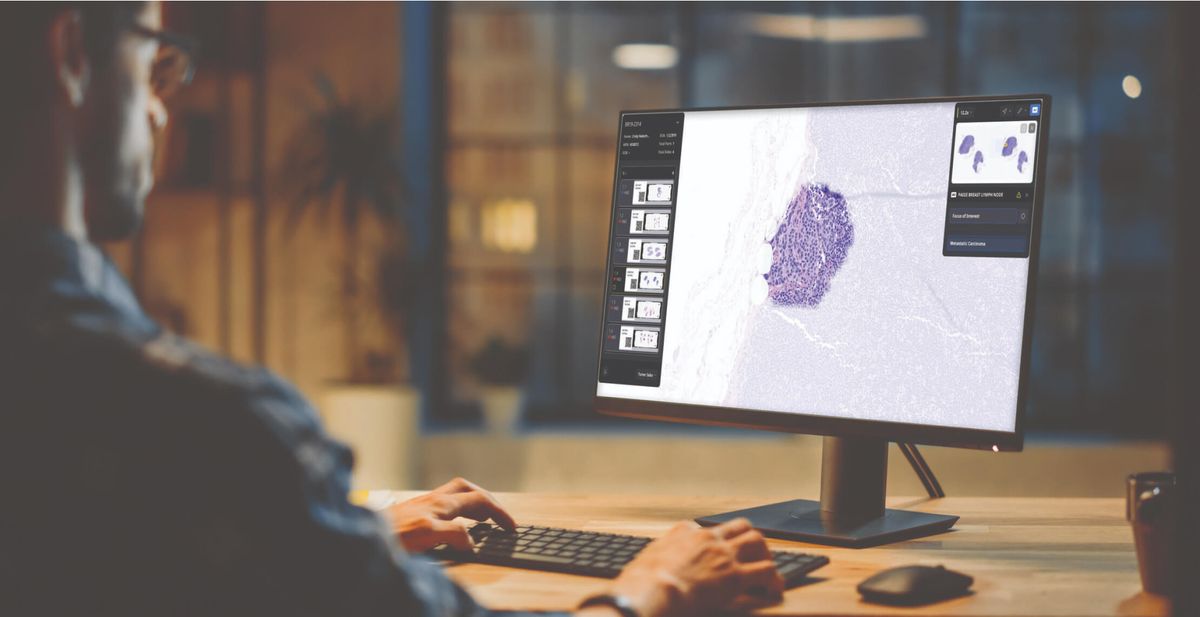
Digital pathology company Paige has announced a new collaboration with Microsoft to develop an AI model aimed at transforming cancer diagnosis and care. The partnership aims to address both the challenges and opportunities in the field of oncology, from data scalability to diagnostic accuracy.
The New York-based startup, which is an acronym for acronym for Pathology Artificial Intelligence Guidance Engine, is working with Microsoft to create what will be the world's largest image-based AI model for digital pathology and oncology. According to Paige, the model will be trained on up to 4 million digitized microscopy slides across multiple cancer types, sourced from Paige's extensive petabyte-scale archive of clinical data.
Over the past year and a half, Paige has been leveraging Microsoft's advanced cloud computing infrastructure to develop a model with billions of parameters, far surpassing any existing pathology AI in size. As described by Paige Chief Scientist Dr. Thomas Fuchs, the model "opens a window into the microscopic world with extraordinary fidelity."
Microsoft and Paige believe the model will enable major leaps in accuracy as well as entirely new capabilities for cancer detection and diagnostics. It aims to aid pathologists in identifying both common cancers like breast, prostate and colon, as well as rare cancers that are notoriously difficult to diagnose.
For Microsoft, this partnership aligns well with their broader ambitions in healthcare. Desney Tan, Vice President and Managing Director of Microsoft Health Futures, noted that Microsoft’s cloud infrastructure is a key component of the partnership, but that they are also "developing the new algorithms, detection and diagnostics that Paige is hoping to deliver in the next couple of years."
The collaboration also aligns with Paige's mission to modernize digital pathology through AI. While pathology plays a pivotal role in cancer diagnosis, workflows have remained relatively unchanged for over a century. Paige seeks to enhance pathologists' capabilities and efficiency through digital tools.
Over the years, the company has achieved major historic milestones in gaining regulatory approval and adoption for its AI-powered pathology solutions. In 2020, Paige became the first company to receive both FDA clearance and and FDA breakthrough designation for its FullFocus™ digital pathology viewer enabling primary diagnosis of slides. In 2021, Paige Prostate became the first FDA-cleared AI tool to detect cancer in prostate biopsies. Most recently in 2022, Paige collaborated with Janssen to implement an AI biomarker test that provides results in under an hour, allowing faster clinical trial enrollment and treatment. Paige's innovations in transforming digital pathology with AI have achieved key regulatory and clinical validation steps on the path to widespread adoption.
According to Paige CEO Andy Moye, the Microsoft partnership represents a "land-on-the-moon moment" for cancer care. He notes the model's potential to provide patients and doctors with more comprehensive, readily available information to guide treatment decisions.
Next Thursday, the companies will publish their research paper preprint quantifying the new model's improvements over existing models. The paper is the first step in what is likely to be an extended journey that includes regulatory approvals and rigorous testing. It could take years before the AI model is ready for deployment in clinical settings. Nonetheless, this partnership has set the stage for significant advancements in the field of digital pathology and oncology, moving the needle towards quicker and more accurate cancer diagnoses.
If successful, the AI model could help overcome barriers like data storage costs and limited staffing that currently prevent many healthcare systems from adopting digital pathology. Paige and Microsoft hope to make the technology widely accessible to expand quality cancer diagnostics globally.

